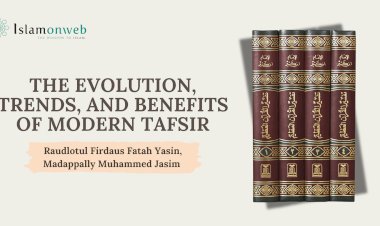أَحَسِبَ ٱلنَّاسُ أَن يُتْرَكُوا أَن يَقُولُوا آمَنَّا وَهُمْ لَا يُفْتَنُونَ | Faith Under Fire: Your Īmān Is Tested
The noble verse أَحَسِبَ ٱلنَّاسُ أَن يُتْرَكُوا أَن يَقُولُوا آمَنَّا وَهُمْ لَا يُفْتَنُونَ (al-ʿAnkabūt 29:2) is a divine reminder that īmān (faith) is not a mere utterance, but a commitment that demands sincerity, perseverance, and sacrifice. Translating to “Do people think that they will be left alone simply because they say: ‘We believe,’ and will not be tested?”, this āyah strikes at the heart of our assumptions and comforts.
This verse speaks not just to individual believers, but to the Ummah across times and places—a community often tested in the most painful ways. From the besieged streets of Gaza to the oppressed Uyghur Muslims enduring forced erasure of their faith, from the political crackdowns across the Islamic world to the everyday struggles of minorities in India, believers are tried for holding on to their identity. In the West, many Muslims navigate complex dilemmas—balancing religious commitment in secular societies, facing Islamophobia, or raising children with firm Islamic values amid cultural pressures.
Yet, the fitnah (trial) is not limited to public or global scales. It can descend as sickness, loss, isolation, internal conflict, or spiritual doubt, striking at the level of the individual. Whether personal or collective, visible or hidden, every hardship becomes a furnace where faith is refined and sincerity revealed.
In this light, the phrase وَهُمْ لَا يُفْتَنُونَ (and they will not be tested) reminds us that trials are not exceptions, but expectations of the believing path. Faith is not proven in comfort but in confrontation—with fear, injustice, or uncertainty. This reflection explores this divine principle through classical tafsīr, historical context, linguistic beauty, and contemporary relevance, anchoring our understanding in the conviction that fitnah is the path of the sincere.
Meaning and Concept of Fitnah
The Arabic word al-fitnah (الفتنة) originates from the root letters (ف ت ن) which denote the act of testing, trial, or examination. Linguistically, fitnah refers to placing something into fire to determine its purity—as one would test gold or silver by exposing it to intense heat, revealing what is genuine and what is impure. In Islamic terminology, as noted by al-Manāwī, fitnah is a form of tribulation or affliction that reveals what is hidden in a person’s inner reality—whether goodness or evil. It is, in essence, a divinely designed process to distinguish sincerity from hypocrisy, clarity from confusion, truth from pretense.
Thus, fitnah is not merely a negative experience or chaos; rather, it is a spiritual diagnostic, a purifying fire that either brings forth the shine of truth or the exposure of falsity. Trials, when responded to with sabr (patience) and istiqāmah (steadfastness), become elevators of the soul—an opportunity to rise in the sight of Allah. But when responded to with resentment or despair, they unveil the fragility of faith.
The second and third verses from clearly conveys this message:
(2) أَحَسِبَ ٱلنَّاسُ أَن يُتْرَكُوا أَن يَقُولُوا آمَنَّا وَهُمْ لَا يُفْتَنُونَ
لَقَدْ فَتَنَّا الَّذِينَ مِن قَبْلِهِمْ ۖ فَلَيَعْلَمَنَّ اللَّهُ الَّذِينَ صَدَقُوا وَلَيَعْلَمَنَّ الْكَاذِبِينَ (3)
"Do people think they will be left alone just because they say: 'We believe', and will not be tested?" (al-‘Ankabūt: 2)
“And We certainly tested those before them, so Allah will surely make evident those who are truthful and He will surely make evident the liars.”
These two verse are reinforcing that trials are not unique to the present ummah. Just as the previous nations were tested, this ummah too will go through fitan to distinguish the sincere in their īmān from those who merely profess faith without inner conviction.
The emphasis in the phrase "فَلَيَعْلَمَنَّ اللَّهُ الَّذِينَ صَدَقُوا" (so Allah will surely make evident those who are truthful) highlights that tests are a divine method to expose realities, not for Allah’s knowledge (which is absolute) but to manifest that knowledge in action for the world to see.
The deeper message is: fitnah is not meant to break you—but to make you. The believer must therefore face trials not with confusion or fear, but with consciousness that fitnah is a necessary path to sincerity, a sunnathullah, (divine law) for purification and elevation.
Trials Are the Measure of True Faith
Al-Baghawī, in his renowned Maʿālim at-Tanzīl, underscores that the verse begins with a rhetorical question: Aḥasiba an-nāsu—"Do people think..."—as an expression of both reproach and clarification. It corrects the flawed assumption that verbal claims of īmān alone suffice without ikhtibār (testing) and ibtilāʾ (trial). According to al-Baghawī, "an yuqūlū āmannā wa hum lā yuftanūn" refers to believers being tested in both their wealth and their lives to distinguish the mukhliṣ (sincere believer) from the munāfiq (hypocrite), and the ṣādiq (truthful) from the kādhib (liar).
He notes several historical causes for this verse’s revelation. Al-Shaʿbī reported that it was revealed regarding a group of Muslims in Makkah who professed Islam but had not yet migrated. When the Prophet ﷺ’s companions in Madinah wrote to them that mere verbal affirmation of faith would not be accepted unless accompanied by hijrah, they left Makkah, but were pursued and attacked by Quraysh. Some were martyred, others escaped. In response, Allah revealed this verse—and the one after it—as a tribute to their struggle and a confirmation that hardship on the path of faith is not a sign of rejection, but of divine purpose.
Among those specifically mentioned were Salamah ibn Hishām, ʿAyyāsh ibn Abī Rabīʿah, al-Walīd ibn al-Walīd, and ʿAmmār ibn Yāsir, all of whom endured brutal torture for their belief. According to Ibn Jurayj, the verse also applies to ʿAmmār in particular due to the intense suffering he faced in Makkah. Another view cited by Muqātil relates it to Mahjaʿ ibn ʿAbdillāh, the freed slave of ʿUmar ibn al-Khaṭṭāb and the first Muslim to be martyred at Badr. The Prophet ﷺ described him as “Sayyid ash-Shuhadā’” (the master of martyrs), and the first to be called to Jannah from this ummah. His martyrdom was deeply mourned by his family, and Allah revealed this verse to console them and affirm that death on the path of īmān is noble, not tragic.
Interestingly, al-Baghawī adds another layer to the understanding of fitnah—it is not limited to persecution or violence, rather it includes the burden of religious obligation. In the early phase of Islam, believers were only required to profess faith. But over time, prayer, zakāh, and other rulings were introduced, and this proved difficult for some. This too is a form of trial—through commands and prohibitions—that tests the endurance and sincerity of one’s commitment to Allah’s path.
Thus, from the lens of Tafsīr al-Baghawī, this verse teaches that trials are multifaceted: physical, emotional, social, and even spiritual. They are not random—they are divine sieves through which the sincerity of faith is revealed. It is a divine law that no one will be left untouched: the believer must be refined through hardship, whether by pain, duty, or sacrifice.
Ibn ʿAṭiyyah adds that although this verse was revealed in a particular historical context, its message remains valid throughout time. The trials facing the ummah—whether in the form of oppression, captivity, warfare, sickness, or hardship—are all echoes of this divine pattern. The verse reminds us that tests can be divine filters. Whether through affliction, fear, hunger, or enmity, Allah examines the strength of our īmān and our steadfastness.
Connection to Other Qur’anic Verses
The theme of yuftanūn (being tested) is not confined to Sūrah al-‘Ankabūt. Rather, it echoes throughout the Qur’ān, affirming that tribulation is a divine norm, not an exception, for those who profess belief.
- Sūrah al-Baqarah (2:214)
أَمْ حَسِبْتُمْ أَن تَدْخُلُوا ٱلْجَنَّةَ وَلَمَّا يَأْتِكُم مَّثَلُ ٱلَّذِينَ خَلَوْا۟ مِن قَبْلِكُم ۖ مَّسَّتْهُمُ ٱلْبَأْسَآءُ وَٱلضَّرَّآءُ وَزُلْزِلُوا۟ حَتَّىٰ يَقُولَ ٱلرَّسُولُ وَٱلَّذِينَ ءَامَنُوا۟ مَعَهُۥ مَتَىٰ نَصْرُ ٱللَّهِ ۗ أَلَآ إِنَّ نَصْرَ ٱللَّهِ قَرِيبٌ
“Or do you think that you will enter Paradise while such [trial] has not yet come to you as came to those who passed on before you? They were touched by poverty and hardship and were shaken until [even] their messenger and those who believed with him said, ‘When is the help of Allah?’ Unquestionably, the help of Allah is near.”
[Surah al-Baqarah 2:214]
This verse reminds believers that entrance to Paradise is not granted by mere wishful thinking or verbal affirmation, but by enduring trials akin to those borne by righteous generations before us. The intensity of the test is such that even Prophets and their followers were shaken to their core, yet they held firm, exemplifying the peak of ṣabr and tawakkul.
- Sūrah Āl ‘Imrān (3:142)
أَمْ حَسِبْتُمْ أَن تَدْخُلُوا ٱلْجَنَّةَ وَلَمَّا يَعْلَمِ ٱللَّهُ ٱلَّذِينَ جَـٰهَدُوا۟ مِنكُمْ وَيَعْلَمَ ٱلصَّـٰبِرِينَ
“Or do you think that you will enter Paradise while Allah has not yet made evident those of you who strive [in His cause] and made evident those who are steadfast?”
[Surah Āl ‘Imrān 3:142]
Here, the emphasis is on jihad—the struggle in the path of Allah—not merely in the battlefield, but in the daily perseverance against desires (shahawāt), doubts (shubuhāt), societal pressures, and personal sacrifices. True īmān is revealed when tested, and ṣabr becomes the believer’s distinguishing hallmark.
- Sūrah Muḥammad (47:31)
وَلَنَبْلُوَنَّكُمْ حَتَّىٰ نَعْلَمَ ٱلْمُجَـٰهِدِينَ مِنكُمْ وَٱلصَّـٰبِرِينَ وَنَبْلُوَا۟ أَخْبَارَكُمْ
“And We will surely test you until We make evident those who strive among you [for the cause of Allah] and the patient, and We will test your affairs.”
[Surah Muḥammad 47:31]
This verse reinforces that the divine testing is not to inform Allāh (jalla jalāluhu)—for He is all-knowing—but to actualise what lies hidden in the hearts. It is a means of public distinction, whereby sincerity is unveiled, and hypocrisy exposed. The phrase nabluwa akhbārakum (“We will test your news/deeds”) serves as a stark reminder: it is not what we claim, but what we do under pressure that defines our spiritual integrity.
Together, these verses draw a coherent picture of divine methodology. Every claim of āmannā (we believe) is followed by a crucible of testing. Whether through hardship, fear, or moral dilemma, the believer is invited to prove their truthfulness before Allah, echoing the words:
إِنَّمَا يُفْتَنُ النَّاسُ بِحَسَبِ إِيمَانِهِمْ
“Indeed, people are tested according to the level of their faith.”
[Reported in Sunan Ibn Mājah]
Thus, the believers should not be surprised by trials, but see them as divine calls to purification and elevation, reminders that Jannah is a reward for those whose īmān was not only spoken—but proven.
The Legacy of Trials: The Prophet ﷺ and His Companions as Living Proof
Throughout his mission, the Prophet ﷺ and his noble companions bore the weight of unimaginable trials—not as punishment, but as the crucible through which true īmān was purified and proven. The polytheists never ceased to torment him and his followers since the moment he proclaimed the divine message. Yet, despite the Prophet's ﷺ high status in the sight of Allāh ﷻ, he carried the burden of suffering with patience and perseverance, modeling for his community the highest standard of ṣabr and trust.
The ṣaḥābah, may Allāh be pleased with them, endured adversities that would break mountains. One shining example is Khabbāb ibn al-Aratt (raḍiy Allāhu ʿanhu), a young man barely in his twenties when he embraced Islam in Makkah. As a slave of Umm Anmār, he was mercilessly tortured with burning iron and dragged over hot coals until the fat of his back extinguished the fire. Despite this, his faith only grew firmer. When the torment of the disbelievers intensified, Khabbāb approached the Prophet ﷺ as he lay resting in the shade of the Kaʿbah and asked, “Shall you not seek victory for us? Shall you not supplicate for us?”
The Prophet ﷺ sat up, his face reddened, and said:
"Among those before you, a man would be seized, placed in a ditch, and a saw would be placed on his head splitting him into two; yet, that would not turn him away from his religion. Flesh would be combed from his bones with iron combs, but that would not turn him away from his religion. By Allāh! This matter will be completed until a rider travels from Ṣanʿāʾ to Ḥaḍramawt fearing none but Allāh and the wolf for his sheep. But you are hasty."
(Sahīḥ al-Bukhārī)
This response was not a dismissal of Khabbāb’s pain, but a redirection: a powerful lesson in prophetic nurturing. The Prophet ﷺ was building in his companions the resilience required for future leadership—resilience forged in the fire of hardship.
Allāh ﷻ affirms this divine method in the verse:
حَتَّىٰ إِذَا ٱسْتَيْـَٔسَ ٱلرُّسُلُ وَظَنُّوٓا۟ أَنَّهُمْ قَدْ كُذِبُوا۟ جَآءَهُمْ نَصْرُنَا فَنُجِّيَ مَن نَّشَآءُ ۖ
"Until [even] when the messengers despaired and were certain that they had been denied, Our victory came to them..." (Sūrah Yūsuf: 110)
This is the Sunnah of Allāh with His messengers and their followers. The promise of victory and security does not arrive before the test—it arrives through it and after it:
وَعَدَ ٱللَّهُ ٱلَّذِينَ ءَامَنُوا۟ مِنكُمْ وَعَمِلُوا۟ ٱلصَّـٰلِحَـٰتِ لَيَسْتَخْلِفَنَّهُمْ فِى ٱلْأَرْضِ كَمَا ٱسْتَخْلَفَ ٱلَّذِينَ مِن قَبْلِهِمْ...
"Allāh has promised those of you who believe and do righteous deeds that He will surely grant them succession [to authority] upon the earth as He granted it to those before them..." (Sūrah al-Nūr: 55)
The Prophet ﷺ not only called his followers to patience, but uplifted their hearts with the hope of future victory. He opened for them a window to Jannah while they were still surrounded by persecution and fire. Even the disbelievers would mockingly say, “These are the kings of the earth who will inherit Caesar and Kisrā,” pointing to the Muslims. They did not realise that those “kings” were indeed being forged—on the anvil of tribulation.
"The most severely tested people are the prophets, then the next best, then the next best. A man is tested according to the level of his faith..."
(Sunan Ibn Mājah)
Thus, it is no surprise that this verse—أَحَسِبَ ٱلنَّاسُ أَن يُتْرَكُوٓاْ أَن يَقُولُوٓاْ ءَامَنَّا وَهُمْ لَا يُفْتَنُونَ —is a divine correction for all who hope to claim īmān without sacrifice.
The believer must expect to walk the path of fire before reaching the gardens of peace. These tests are signs of divine selection. They cleanse the soul, raise the ranks, and distinguish the sincere from the false.
أَمْ حَسِبْتُمْ أَن تَدْخُلُوا ٱلْجَنَّةَ وَلَمَّا يَأْتِكُم مَّثَلُ ٱلَّذِينَ خَلَوْا۟ مِن قَبْلِكُمْ...
"Do you think you will enter Paradise without being tested like those before you?" (Sūrah al-Baqarah: 214)
If the prophets and the early Muslims endured so much for their faith, how can we expect ease in ours? And if they stayed the course under whips and flame, can we not stay the course amidst minor trials, social pressures, or spiritual doubts?
Let’s Conclude
In the grand narrative of īmān, trials are not anomalies but essential threads in the divine wisdom. As the Prophet ﷺ said, "The believer continues to be tested in his self, wealth, and children until he meets Allāh with no sins upon him" (al-Tirmidhī) — such tribulations serve as a purification, a preparation for a higher station with Allāh ﷻ. In this light, we cannot remain indifferent to the searing agony in Gaza, where children are orphaned under rubble and the call to prayer rises over ash and smoke. Nor can we turn a blind eye to the systematic pressures faced by Muslims in India, targeted by rising extremism and discriminatory policies, or ignore the surveillance, isolation, and identity crises experienced by Muslims in the West.
These are not just political headlines — they are divine tests unfolding on the canvas of time, calling us to resilience, sabr, and a renewed sense of brotherhood. The verse reminds us all: "Do people think they will be left alone just because they say, ‘We believe,’ without being tested?" (al-‘Ankabūt: 2). Our response to these tests will echo in the Hereafter — will we resist or relent? Will we uphold the truth, or be consumed by doubt? Know this: with each trial passed, we are not breaking — we are being polished for a meeting with our Lord, radiant with the light of proven faith.
Disclaimer
The views expressed in this article are the author’s own and do not necessarily mirror Islamonweb’s editorial stance.

























Leave A Comment